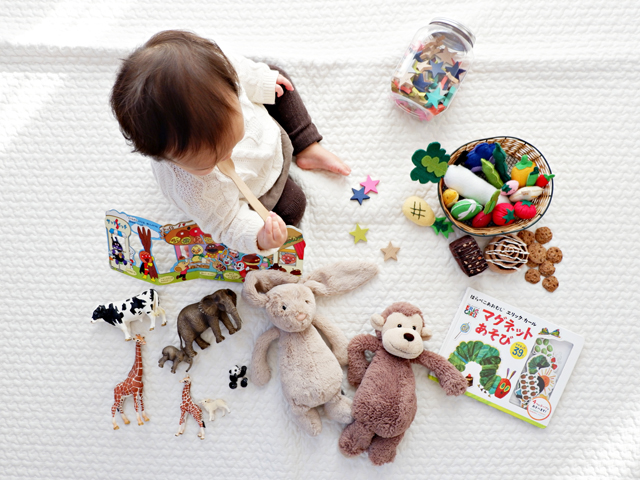Boost Motor Skills

How parents can boost their child's motor skills, right from infancy
Using active toys, playing with older kids and having more time to explore are key ways parents can encourage their children's motor skill development, starting from infancy, according to a newly published longitudinal study from Deakin University.
Lead researcher Associate Professor Lisa Barnett at Deakin's Institute for Physical Activity and Nutrition (IPAN) said the study showed parents could do a number of things to ensure their children developed the gross motor skills they needed to be physically active.
"It's critical to investigate what factors help motor skill development as half of Australian children finish grade six without mastery of the basic skills like jumping, kicking and throwing," Associate Professor Barnett said.
"Without these skills it is hard for children to take part in games and sports, and we know that only one in five children are reaching Australia's physical activity targets, set by the Department of Health, so we need to do more to uncover what will help them be more active."
The IPAN study – carried out in collaboration with Dr Jill Hnatiuk – tracked more than 200 children across key stages from infancy, to toddler, preschool, and then a final test at age five.
It found infants with more toys for physical activity had better motor skills at five years old, and pre-schoolers who played more often with these types of toys had better ball skills at age five.
"Age appropriate toys can be anything that helps a child be more active. For example a play gym for an infant or a ball for a pre-schooler," Associate Professor Barnett said.
"Time with older children also helped children's motor skills. Infants, toddlers and pre-schoolers all had better motor skills at age five, if they spent more time with older children. This is probably because older children can act as role models, and inspire younger children to keep up and extend themselves."
For toddlers in particular, Associate Professor Barnett said time free to move about made a big difference to their motor skills at age five.
"The tip here is to ensure children spend less time in prams and car seats and more time being able to explore, both inside and outside," she said.
The study – published in a recent edition of the International Journal of Behavioral Nutrition and Physical Activity – is the first to track children from birth, while also gaining valuable information on parental behaviour that might assist children's motor skill development. It forms part of the wider Melbourne INFANT program, co-led by IPAN's Associate Professor Kylie Hesketh and Professor Karen Campbell.
Associate Professor Barnett is now aiming to understand what factors help children develop a positive perception of their ability to perform motor skills, which is important in motivating children to be active and develop their physical literacy.
Associate Professor Barnett was one of three lead researchers who developed the recent definition and framework of physical literacy for Australia, which can be found on the Sport Australia website.
Professor Barnett's tips for parents to develop children's motor skills:
• Have diverse toys for physical activity at home. These do not have to be expensive, what is important is variety and having a number of options. Examples might be a bike or scooter for a pre-schooler, a mini basketball hoop for a toddler and toys that encourage propulsion and movement in an infant.
• Make sure your children have lots of opportunities to play with older children – either at day care or preschool, or with family, friends or neighbours.
Photo by Shitota Yuri on Unsplash
MORE



